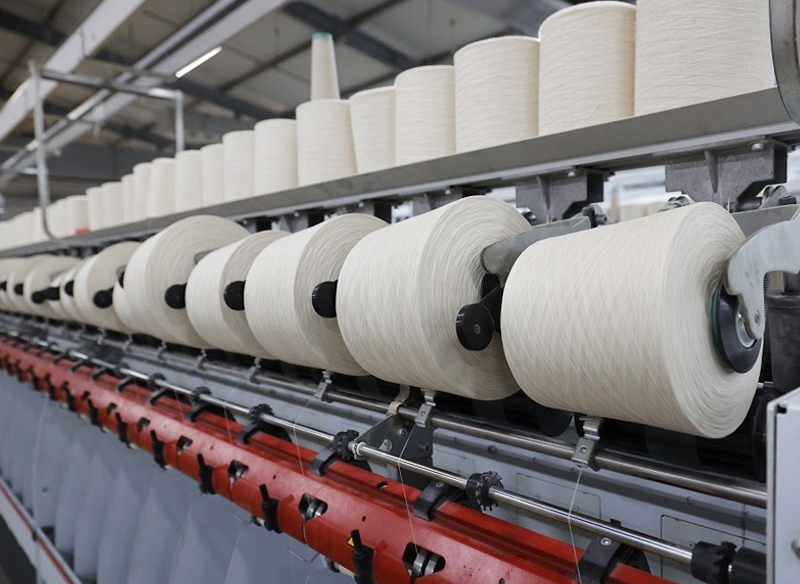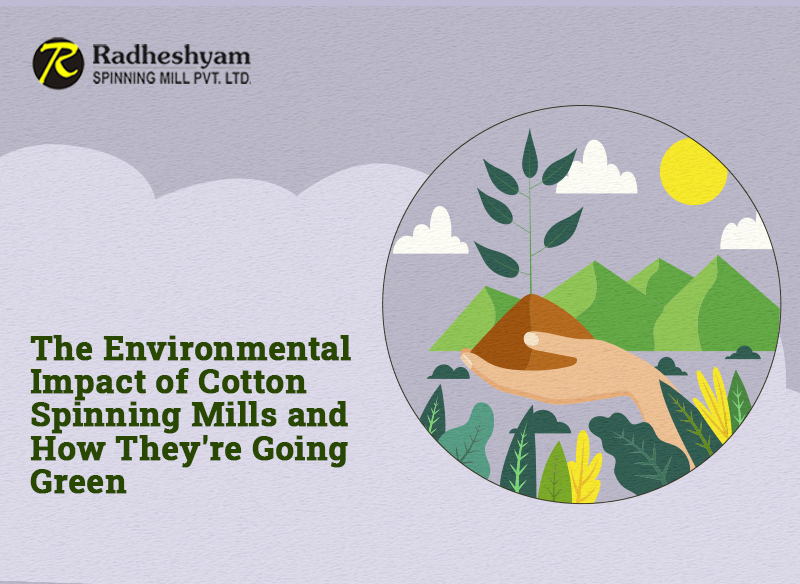22 Jan, 2026

Cotton Yarn Manufacturer Checklist: What International Buyers Need to Know
Buying cotton yarn for export trade requires the right choice in an exporter regarding quality, dependability, and pricing. Exporters face it particularly difficult, be it coping with cultural differences or remaining abreast with international trading norms. Below is a checklist that mentions top priorities for a buyer to choose correctly while identifying an exporter for cotton yarn such that procurement would be hassle-free and rewarding.
1. Check Manufacturer Credentials and Certifications
Before engaging with a cotton yarn manufacturer, verify their credentials. Reputable manufacturers should hold certifications like ISO 9001 for quality management or OEKO-TEX Standard 100 for textile safety. These certifications indicate adherence to international standards for production and environmental responsibility. Demand documentation and check with issuing agencies to confirm authenticity.
2. Examine Production Capability and Scalability
You need to be able to ascertain a producer’s production capability to make sure that they can fulfil your order amounts, particularly for huge or repeat orders. Request to view in-depth facts regarding their daily or monthly capacity, equipment, and man-power. Do they possess the capacity to alter production during peak seasons without compromising on quality? Request information on lead times and whether they can expedite urgent orders. A good cotton yarn producer ought to have the infrastructure to meet your needs without compromising on consistency, be it in the case of small batches or large shipments.
3. Assess Raw Material Sourcing
The cleanliness of cotton yarn largely relies on the quality of raw material. Inquire from the manufacturer how they acquire cotton. Are they acquiring high-quality, long-staple cotton or the low type? Are they open about their supply chain? For green buyers, check if the manufacturer is acquiring cotton from suppliers who are environmentally and ethically responsible, e.g., suppliers who have the Better Cotton Initiative (BCI) certification. Ask them to send samples to be inspected for yarn strength, texture, and homogeneity to be according to your specifications.
4. Inspect Quality Control Procedures
It is not a luxury to have a good quality control system while choosing a cotton yarn manufacturer. Ask them how they test at each stage of production, i.e., from spinning to packing. Do they inspect yarn strength, twist, and evenness? Do they use any fault-proofing or contamination measures? Demand quality reports or third-party inspection reports as proof of their assertion. Manufacturers with good quality control will receive consistent quality and lower opportunities for rejection or return at expensive premiums.
5. Be Specific About Pricing and Terms of Payments
Price does matter but never let it be the only reason to decide on price. Asking for complete breakup prices such as manufacturing the yarn, packaging, shipping must be asked for. Be careful of manufacturers who offer significantly lower quotes because this can mean that quality is also compromised. Negotiate payment terms, i.e., advance payment, letter of credit, or instalment plan, and align them with your financial cycle. A pure and open cotton yarn mill factory will exhibit open prices and free terms to create trust and long-term business.
6. Check Logistics and Shipping Facilities
Effective logistics play a vital role in ensuring timely delivery in foreign trade. Ask the manufacturer about their shipping procedure, packaging needs, freight methods, and agreement with credible logistics companies. Do they give quotations on Free on Board (FOB) or Cost, Insurance, and Freight (CIF) terms? Do they have past experience with shipping in your nation and expertise with documentation like certificates of origin or commercial invoices? A reliable cotton yarn manufacturer with strong logistics capability will reduce delay and have your products delivered in an excellent condition.
7. Check for Reputation and Track Record
Research the reputation of the manufacturer in the market. Search for testimonials, reviews, or case studies from past overseas buyers. Were they timely and on quality specs? Check their complaint or non-compliance history. Websites like Alibaba or trade forums for your industry are a good source to know if they are reliable. Wherever possible, interview past clients to gain first-hand experience. A trustworthy manufacturer with a sound past is going to be a good business partner.
8. Test Communication and Support
Good communication is important when dealing with an overseas cotton yarn manufacturer. Test their responsiveness, language skills, and ability to solve your issues. Do they give regular production and shipping updates? Are they willing to give virtual or actual factory tours? A manufacturer who prioritizes good communication and customer service can solve issues in a timely fashion and establish a partnership-based relationship.
Conclusion
Selecting the most suitable cotton yarn producer involves thorough assessment of their capacity, dependability, and fit with your corporate goals. Using this checklist, global buyers can reduce risks, guarantee product quality, and create partnerships that equate to global market success. Take time to ask questions, research, and confirm claims to create a value-driving supply chain that equates to consistency. With the proper maker, you will be able to meet the demands of your clients and deal with the intricacies of global trade.




